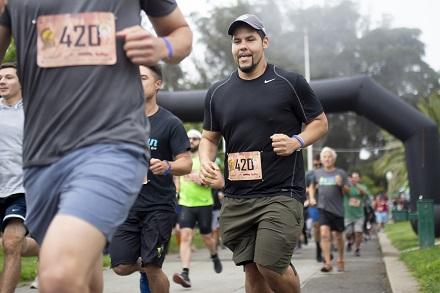
The 420 Games, a national multi-sport event company founded by cannabis advocate Jim McAlpine, was established to show that cannabis users are not lazy, unmotivated or “stoners” and to de-stigmatize the millions who use cannabis in a healthy and responsible way. The event does not advocate that everyone should use cannabis and makes it very clear this is a sports event rather than a smoke-in. The Games include a series of athletic events taking place in cities like Los Angeles, Denver, San Francisco and Pittsburgh, where cannabis is legally available. All events feature a 4.20-mile foot race, various athletic events, speeches from pro athletes, a beer tasting garden, educational speeches and music.
Editor’s Note: An interactive U.S. map showing where cannabis is legal (and for which uses) and where it is not can be found here. (Check individual state laws, however, as not all updates may be recorded instantly).
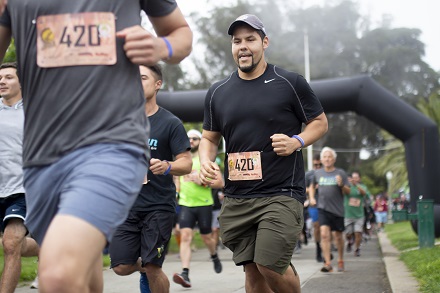
Jim McAlpine: The purpose is to de-stigmatize the athletes who use cannabis and to show it can be enjoyed in a responsible way.
SDM: How long have the Games been around?
McAlpine: I founded them in 2014; last year was our fifth annual event. Our first event was in Golden Gate Park; we’ve since held them in San Jose, Los Angeles, San Diego, Lake Tahoe, Portland (Oregon), Seattle and Pittsburgh.
SDM: How did the Games get their name?
McAlpine: 420 is actually a term that has been around for generations; it’s a code word for cannabis use – a reference to the time of 4:20 p.m. each day, when many people use cannabis. This name was chosen to be discreet; I didn’t want to use the words cannabis or marijuana. This is less in-your-face than that.
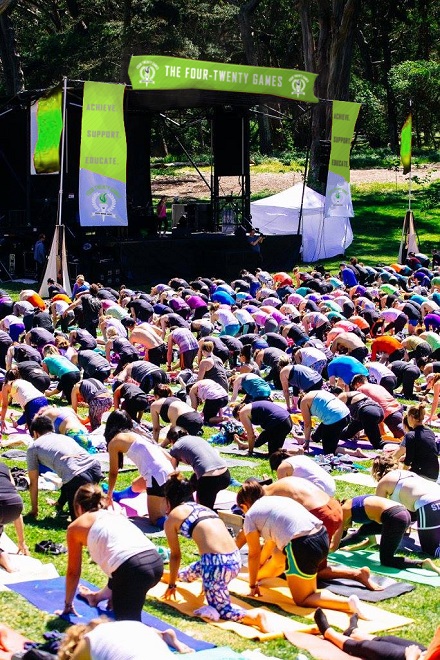 SDM: Which sports are included in the 420 Games?
SDM: Which sports are included in the 420 Games?
McAlpine: The main event is our 4.20-mile run. Most events have a 5K, which is 3.1 miles. We run an extra mile to show you we’re not lazy. We also have jiu-jitsu, skateboard, 3-on-3 basketball and CrossFit competitions. There’s also a yoga session which we use as our pre-run warmup.
SDM: That’s a lot of very high-energy pursuits. Do you find that even with the growing legalization, the stereotypes persist?
McAlpine: Yes – I’ve used marijuana my whole life, even in high school when I was an athlete. I wanted to create an event that would be completely different and would counter the image of tie-dye- and dreadlocks-wearing people who smoked all the time. I still think to this day, that Hollywood and the media have kept the stereotype alive – Cheech and Chong, for example, had that stoner image and made a big joke out of it.
These days, people are more open-minded about it, especially in the liberal states. You’re not looked down on for being a cannabis user. Cannabis isn’t a train that is going to be stopped; it’s already used by athletes across all sports. In fact two really high-profile athletes, Usain Bolt and Michael Phelps, both are known cannabis users.
SDM: You talk about it being prevalent across all sports but are there any sports that you view as particular strongholds?
McAlpine: The biggest communities are in marathon and ultramarathon athletes. It’s also part of the NBA and NFL culture. It’s always been part of the surf, skateboard and snow culture as well.
SDM: Getting back to the locations for the Games, do you find destinations being increasingly open to this?
McAlpine: Yes – when we started, people were saying, “We don’t want that in our parks.” But we don’t use it at our events. In fact, if you drove by the 420 Games, you would think it looked like any other sports event. Once we had some history, it became easier for us to find locations. That really broke down the walls for us. Now that I’ve built these track records, so to speak, I want to take this message and bring the event to places that need it. It’s not about ‘let’s get high;’ it’s about having a medical alternative. Well over half our U.S. states have legalized cannabis for different uses. Sometimes, that surprises people; for example, medical marijuana is now available in Arkansas and Texas – two states you’d have thought of as non-cannabis friendly.
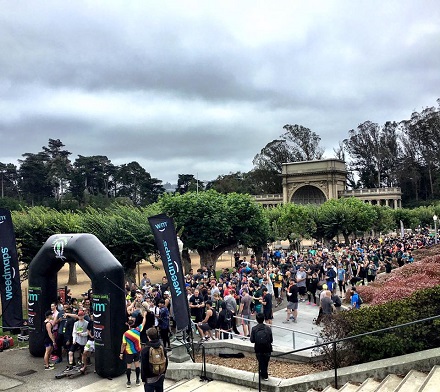 Editor’s Note: Those interested in hosting can e-mail Jim McAlpine at jim@420Games.org.
Editor’s Note: Those interested in hosting can e-mail Jim McAlpine at jim@420Games.org.
SDM: How many people attend the 420 Games?
McAlpine: The last few Games, we’ve had about 3,400 people. Something we’ve seen is that it’s the local people who are coming out of the woodwork to support this event. I think as this grows, it will have a major impact on cities.
SDM: Do you market it?
McAlpine: The year 2018 was the first one where we went to a sports destination expo. That’s something we’d never done before.
SDM: What’s the attendance demographic like?
McAlpine: It’s about 60/40 on the male/female ration and it skews sort of Millennial-esque. It’s a demographic like many 5Ks. It’s also a very family-friendly event as well as a cannabis advocacy event. My daughter, who is nine, has run the 4.20-mile event; she started doing that when she was six.
 SDM: The term, cannabis advocacy event, though, might worry some destinations.
SDM: The term, cannabis advocacy event, though, might worry some destinations.
McAlpine: If you look at any other city in this country, you’ll find intramural leagues and clubs for flag football, basketball, soccer – and a lot of them have been centered around alcohol. I would say that at this point cannabis use is still looked at like smoking cigarettes, though; it’s not as accessible or welcome as alcohol is at those other types of events.
SDM: Interestingly enough, we’re seeing tremendous growth of the industry of cannabis and of the ways it intersects with sports. Companies are sponsoring sports teams and events, and there’s an increasing number of convention and visitors’ bureaus putting information on their websites, stating that it’s legal and where to find it.
McAlpine: We are starting to see more ‘bud and breakfast’ establishments, too. I think there is a burgeoning tourism industry. Cannabis is an agricultural product and can be promoted the way California’s wine country is. People can go on tours, see where it is grown and become educated about it in a very high-class, cool way.
SDM: What is the big take-away you hope to accomplish with people who are new to the concept of the 420 Games?
McAlpine: That it’s not what you thought. I tend to use the term cannabis rather than marijuana because I think marijuana is associated with the idea of it being a drug and being bad. I don’t think everyone should use it, though, just as I don’t think everyone should drink wine. I tell people who are considering using it to do the research. It’s not for everyone but it’s an option people might not have had before.

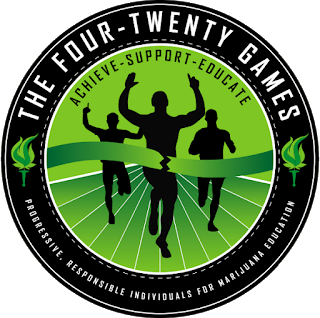 420games.org
420games.org